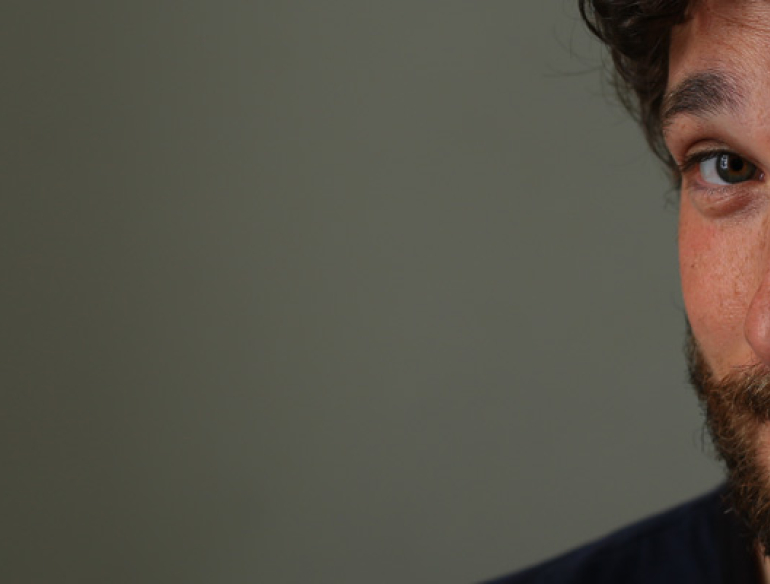Gay and bisexual men (GBM) in Australia are heeding public health advice and having less sexual contact with other men due to COVID-19 physical distancing measures, according to new research by UNSW’s Kirby Institute published today in JAIDS.
The study surveyed 940 GBM, and found that almost 95 per cent recognised that sexual contact, particularly with casual partners and in group sex, was a risk during the pandemic. There was a 12-fold decrease in the number of partners respondents were having sex with, with an 84 per cent reduction in sexual contacts occurring across all partner types outside of a committed relationship.
“The results from our study show that an overwhelming majority of gay and bisexual men have adapted their behaviour and are adhering to physical distancing guidelines in light of the COVID-19 pandemic,” says Dr Mohamed A. Hammoud, who is the lead author on the paper. “Gay and bisexual men have adjusted their prevention strategies throughout the HIV epidemic to protect themselves and each other. Our community has a long history of creating innovative strategies to reduce risk, and we are seeing this continue with this new health challenge.”
The research leveraged the Kirby Institute’s longstanding and established Flux Study, which has a network of over 3,000 GBM who have been routinely surveyed about their sexual and drug use behaviours since 2014.
When the COVID-19 pandemic emerged, researchers recognised that Flux is uniquely placed to monitor trends in the relevant sexual and other risk behaviours among GBM prior to and throughout the COVID-19 pandemic, and potentially during the period after its most significant impacts. They received 940 responses to the COVID-19 surveys, which they analysed for this latest work. The study was funded to monitor how changes in sexual behaviour may predict fluctuations in HIV and STI diagnoses in the short term. It will also be able to do so during the period after its most significant impacts.
“Gay and bisexual men have dramatically reduced their sexual contacts in response to this global pandemic. As a consequence, it is also likely that we will see a reduction in new HIV and STI diagnoses in the short term,” says Associate Professor Garrett Prestage, who is the paper’s senior author. “Trends in these diagnoses are likely to fluctuate significantly in response to changes in physical distancing restrictions.”
Future work will also need to consider appropriately targeted policy responses and harm reduction interventions as people return to a ‘new normal’ following the easing of restrictions, or adjust to the ongoing impact of COVID-19 on people’s sexual behaviour. The responses from participants are also being analysed to determine the social and mental health impact that the COVID-19 pandemic and associated restrictions have had on GBM.
“We had a unique opportunity here to monitor how these swift measures have and will continue to impact on the transmission of these infections within the community. Future policy should meet the needs of gay and bisexual men as we move forward with COVID-19 being a risk in our communities,” says Dr Hammoud. “We thank every participant who has taken the time to respond. Often this has been accompanied by raw and moving detail about how COVID-19 has impacted their lives. Despite the often negative impacts on individuals, we must recognise their investment in the health of themselves and their peers.”
ENDS
The paper has been published online ahead of print and can be accessed here: https://journals.lww.com/jaids/Abstract/9000/Physical_distancing_due_to_COVID_19_disrupts.96117.aspx
Stakeholder quotes:
Dr Jeanne Ellard, Senior Advisor Research, AFAO: “Throughout the HIV epidemic, gay men have continually adapted their sexual practices to reduce the risk of HIV transmission. These findings show the capacity of gay men to quickly change their sexual behaviours in response to a new global pandemic. As we all move into an uncertain future, it will also be important to understand the broader effects of COVID-19 on the health and wellbeing of individual gay men and their communities.”
Nic Parkhill, CEO, ACON: “Gay and bisexual men have modified their behaviour in response to coronavirus, and that is to be commended. Throughout the pandemic, our communities shown great commitment in maintaining good health not just for ourselves, but also for the health of our friends, partners and loved ones.”
Simon Ruth, CEO, Thorne Harbour Health: “The Flux Study was remarkably placed to monitor and identify changes in the behaviour of gay and bisexual men in the face of the unprecedented COVID-19 pandemic. It’s a unique opportunity that now provides us with valuable insight into how these communities have been impacted and how we might respond to the potential changes in their mental health, alcohol and drug use, as well as HIV and STI notifications.”
Contact
Estelle Jones, Communications Officer
Phone
+61 2 9385 9987
